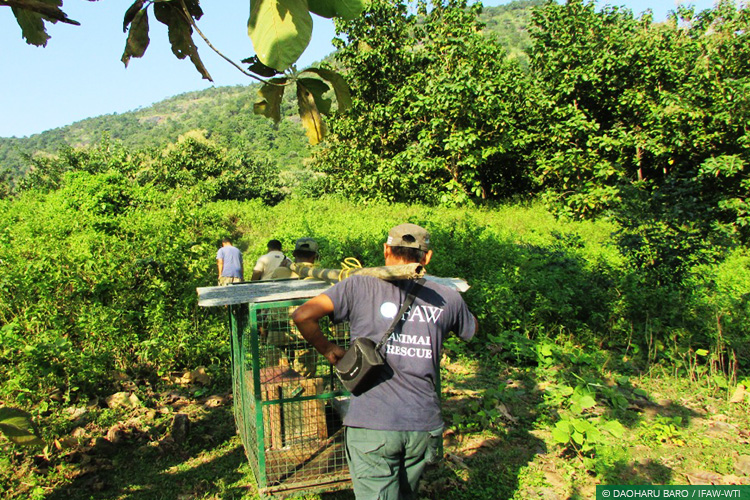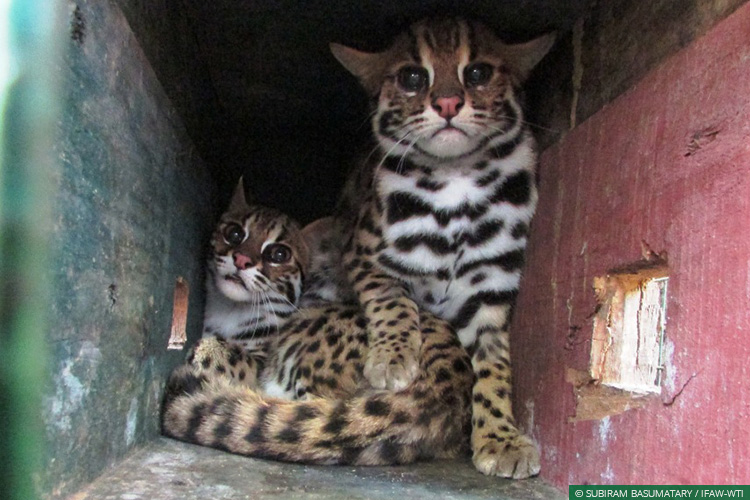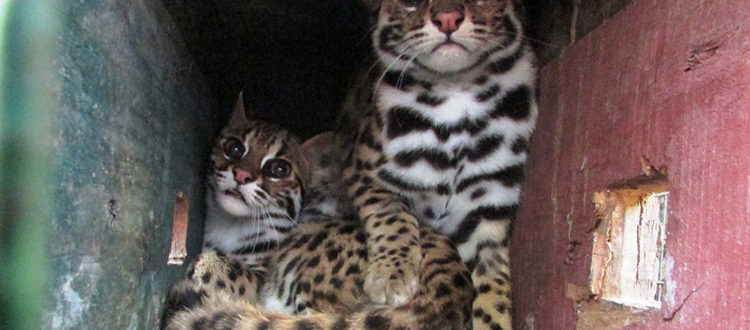Western Assam MVS Helps Rehabilitate Two Rescued Leopard Cats Back to the Wild
 The leopard cats being transported to the release site in the forests of Bhumeshwar Pahar
The leopard cats being transported to the release site in the forests of Bhumeshwar Pahar
Charaikhola, Bodoland Territorial Area District, November 6, 2017: Working in concert with the Assam Forest Department, IFAW-WTI’s Western Assam Mobile Veterinary Service (MVS) unit, established under the Greater Manas Recovery Project, successfully rehabilitated two rescued leopard cats back into the wild on October 31.
The leopard cats, a male and a female, had been rescued by locals near Panchapur and Athugaon villages under the Aie Valley Forest Divison, Bongaigaon district, in May. They were brought to the MVS team’s Wildlife Rescue Centre Field Station, where they were examined and their prospects of rehabilitation assessed by Dr Daoharu Baro, the veterinarian in charge.
Having been hand-raised at the IFAW-WTI Wildlife Rescue Centre for five months, the leopard cats were shifted to a rehabilitation site in the forests of Bhumeshwar Pahar.
On October 29, having been hand-raised at the centre for five months, the leopard cats were shifted to a carefully chosen rehabilitation site in the forests of Bhumeshwar Pahar, a few kilometres from the place of rescue. The MVS team set up a temporary cage in the forest to help the animals acclimatise before they were released two days later. Frontline staff of the Chakrashila Range (Kokrajhar Wildlife Division) and the Bahalpur Range (Bongaigaon Wildlife Division) assisted in the animal release process, as did Manjit Kumar Ray and Bedabrata Singha, two local wildlife enthusiasts who participated as volunteers.
“The involvement of local stakeholders is particularly pleasing, since it is an indicator that people are gradually getting aware about saving wildlife and preserving wild landscapes and habitats. I thank everyone involved in making the rehabilitation a success”, said RN Boro, DFO, Kokrajhar Wildlife Division.
“The team helped the leopard cats develop their hunting instincts during their five-month rehabilitation at the Wildlife Rescue Centre”, said MVS veterinarian Dr Baro. “We are all happy to see them back in their natural habitat and are hopeful that they will have a successful life in the wild.”
 The leopard cats in a temporary cage prior to being moved to the release site
The leopard cats in a temporary cage prior to being moved to the release site









